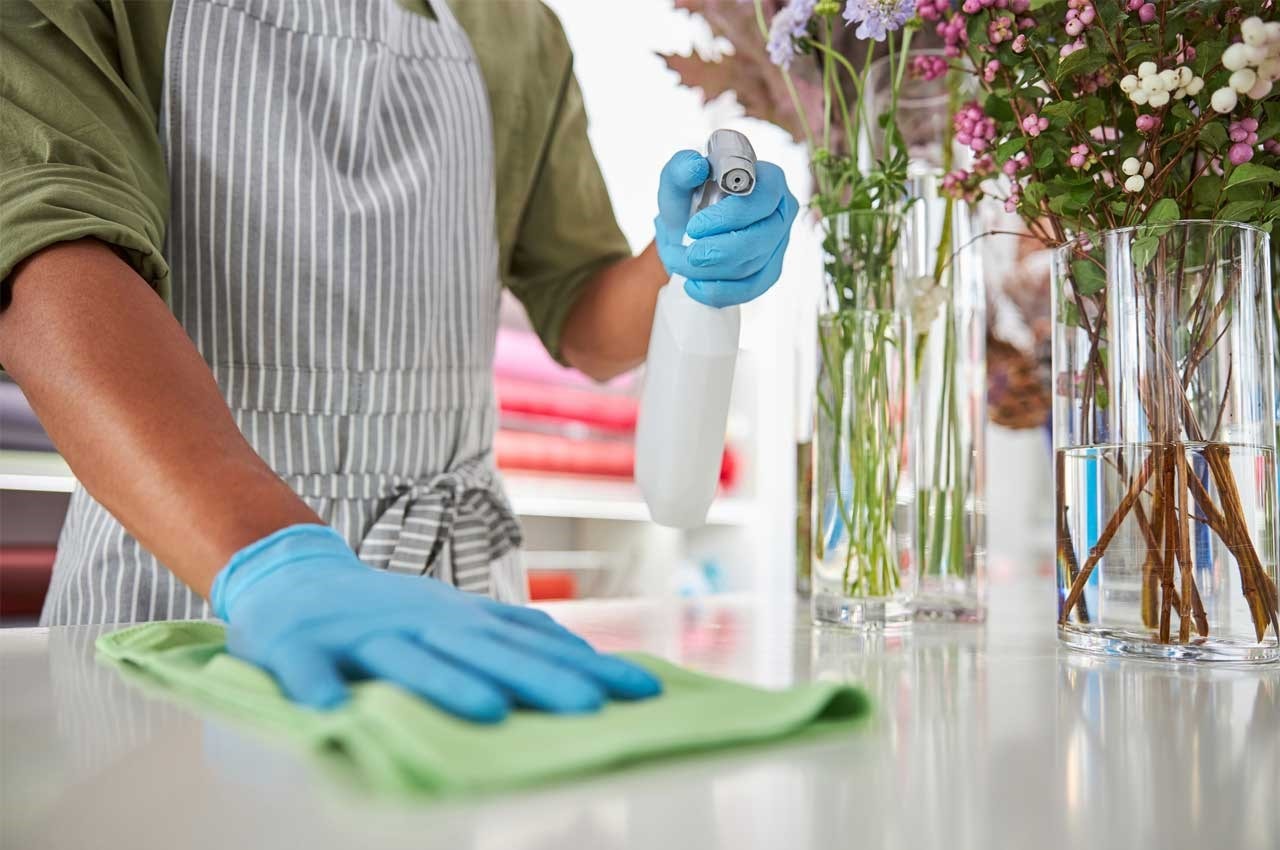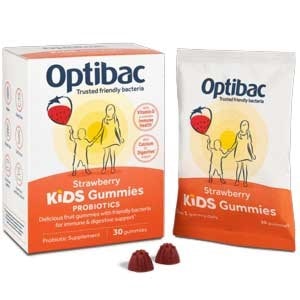Cleaning Products Hurt Gut Health
There has been an understandable battle against ‘germs’ since the beginning of the Covid-19 pandemic. Stopping the spread of viruses and bacteria has been at the forefront of our minds, and an integral part of our approach to preventing their spread has been increased sanitation. Never have we bleached, wiped, cleaned and washed our hands and surfaces as much as we do currently. Many people have even been disinfecting their groceries when they get them back from the store. This is a sensible precaution against Covid-19, but are there any disadvantages? Does this ‘cleaning frenzy’ have any wider implications for our health, and the health of our children?
According to NC Solutions, an American company who track consumer trends and buying patterns, sales of antiseptics and disinfectants in the U.S increased by 61% over the period March-September 2020. Bar and liquid soap sales rose by 65% and hand sanitizer sales increased by a staggering 838%1.
If we look at this consumer trend from the standpoint of the gut microbiome and our gut health we might start to have concerns. A healthy gut microbiome is known to positively impact our overall health, including our metabolic health and our immune health. Our gut microbes keep us healthy in many ways, not least by providing the first line of defence against any ingested pathogens or toxins. The beneficial microbes that colonise our gut are essential to our well-being, however, they are delicate, and when their communities are damaged we often see implications throughout the body.
Unfortunately, our modern lifestyles can wreak havoc on the microbiome. Many factors including stress, poor diet, antibiotics and other medications can alter the balance of beneficial to harmful microbes in the gut. When our gut flora becomes imbalanced due to these external factors we are at an increased risk of many different health problems, including allergies, metabolic conditions and obesity.
Within this article:
- Studies link cleaning products to reduced diversity of gut microbes
- Reduced microbial diversity linked to detrimental health outcomes
- The ‘Hygiene Hypothesis’
- The ‘farm effect’
- Summary
Studies link cleaning products to reduced diversity of gut microbes
So, might the chemicals found in cleaning products cause problems for the gut microbiome? Several studies would suggest that they do.

A 2016 study2 demonstrated that triclosan a common ingredient found in cleaning products has significant negative effects on gut microbiota composition and function. A subsequent study3 published in the European Journal of Nutrition in 2019 added further weight to these findings by summarising that microbiome diversity decreased significantly with regular exposure to dishwasher detergents. In line with the reduction in gut microbe diversity, the study also reported significantly reduced levels of beneficial microbial metabolites such as short-chain fatty acids in the gut. These gut-microbiota derived metabolites play important roles in our digestive health, as they provide energy for the cells of the gut wall, and reduce gut inflammation.
So, how does this alteration to the microbiome affect us? Let’s take a look at the possible implications of a reduction in microbial diversity on our health.
Reduced microbial diversity linked to detrimental health outcomes
Links have been made between a lack of diversity of gut microbes and many different health conditions.
A 2015 study4 linked reduced microbial diversity and abundance to metabolic disorders, such as prediabetes and diabetes. In 2012, scientists at the Royal Children’s Hospital in Victoria looked at whether microbial diversity impacts on childhood eczema. Researchers took faecal samples from 98 newborn babies from atopic (allergic) families5. The samples were analysed for microbial diversity, and it was found that many of the infants with the lowest levels of microbial diversity went on to develop eczema by age 12 months.
The study concluded that: ‘A more diverse intestinal microbiota in the first weeks of life is associated with a reduced risk of subsequent eczema in infants at increased risk of allergic disease. Interventions that enhance microbial diversity in early life may provide an effective means for the prevention of eczema in high‐risk infants’.
A further study6 published in the journal CMAJ looked specifically at whether the use of common household cleaning products was associated with childhood obesity. The study found links between household cleaning products and childhood overweight and demonstrated that more frequent home use of disinfectants was associated with an increase in abundance of Lachnospiraceae (a family of bacteria) present in a child’s microbiome. This relative abundance of Lachnospiraceae, in particular bacteria belonging to the Ruminococcus genus, was the mediating factor for childhood overweight and obesity.
The women who took part in the study were enrolled during pregnancy, and the research team then followed their children from birth to the age of 3 years. A total of 757 infants were monitored. When their babies were 3-4 months old, the mothers were asked about their household cleaning product usage and had to name the types of products they most commonly used. Height and weight measurements were also taken to calculate the body mass index (BMI) of each woman. At the same point, faecal samples were taken from their children, and their gut microbiome populations were analysed.
This data was then compared with the types of cleaning products used in the children's households. Initial findings indicated that disinfectant products appeared to have the greatest negative effect on the gut bacteria of the infants, more so than other products such as laundry detergents and spray air fresheners.
Children from households regularly using disinfectants displayed higher numbers of bacteria from the Lachnospiraceae family. Higher faecal levels of Lachnospiraceae recorded at age 3–4 months were significantly associated with an increased BMI at age 1 and also at age 3. This is particularly interesting as the previous research7 had already found a link between obesity and certain species of the Ruminococcus genus being present in the gut.
Interestingly, the same effect was not found when eco-friendly alternatives to mainstream cleaning products were used. Using eco-friendly products was associated with a decreased likelihood of becoming overweight. But why might this be? It could be that the natural ingredients are less foreign to our guts and so do not produce such negative effects as typical cleaning products, which often contain hazardous synthetic chemicals. However, it might also be that those households who use eco-friendly products are making healthier choices in other areas of their lives, too, and so are at a lower risk of obesity for this reason.

The ‘Hygiene Hypothesis’
By linking the use of cleaning products to an increase in childhood obesity, this study raises more questions about the ongoing ‘hygiene hypothesis’. Is the obsessively sanitary nature of modern existence actually having a detrimental impact on our health? Compelling research8 exists to suggest that exposure to a number of different bacteria can strengthen our immune systems. Without contact with microbes, our immune systems are not sufficiently challenged, and this may impede the development of immune-regulatory mechanisms in young children. It is a long-held belief that children should be allowed to get themselves dirty, and many studies back this up by showing immune advantages to growing up with exposure to a rich diversity of microbes.
The ‘farm effect’
In 2001 researchers analysed data from 6,251 randomly selected adults that had participated in the European Community Respiratory Health Survey (ECRHS)9. Participants answered a detailed questionnaire and had undergone medical testing for immune markers to 5 different allergens. The review found that compared to other adults, those that had lived on a farm when they were children had significantly reduced sensitivity to common allergens, such as grass, cats and pollen.
The review went on to say that: ‘The protective effect of a farming environment in childhood observed in this population-based sample of young adults provides evidence in favour of the hypothesis that environmental factors encountered in childhood may have a lifelong protective effect against the development of allergy’.
Summary
More and more people are beginning to understand the importance of maintaining a diverse gut microbiota. Currently, however, this diversity is coming under threat from our increased use of disinfectants and sanitizing products. So, what can we do to safeguard our microbiome without putting ourselves at risk from the spread of viruses and other infectious microbes?
Despite the detrimental effect on our gut flora that these anti-microbial cleaning and personal hygiene products have, I am certainly not suggesting that people should stop taking the necessary precautions against Covid. Instead, I would simply recommend an increased focus on looking after the microbiome in other ways.
Nurture your gut flora (and that of your children) with gut-friendly foods. The friendly bacteria in your gut feed on prebiotic fibre, which is found in many different fruits and vegetables. Onions, garlic, chicory, bananas and artichokes are particularly rich sources. Also try to limit the amount of sugar in your diet, as this can feed pathogens in the gut and move us away from a healthy balance of gut microbes.
Consider probiotic supplements for your kids and yourself. Taking a high-quality probiotic supplement every day is an easy and effective way to keep your levels of ‘friendly’ bacteria topped up, and could limit the damage done by exposure to cleaning products.
Try to get outside and into nature more! Encourage your kids to help you in the garden, as exposure to soil-based microbes helps to stimulate their developing immune system. We could all learn a thing or two from our kids about the very real benefits of getting a bit messy now and then.

If you enjoyed this, you might be interested in our previous blog, also about gut bacteria and obesity:
Is your gut bacteria the reason you can't lose weight?
You might also like to read more about the 'hygiene hypothesis' in the following blogs:
Gut bacteria, allergies and probiotics on BBC's Horizon
Are dogs, and their bacteria, good for your immune system?
References
- https://www.ncsolutions.com/covid/would-you-like-sanitizer-with-that/
- Yee AL, Gilbert JA, et al. (2016). MICROBIOME. Is triclosan harming your microbiome? Science. 353(6297):348-9.
- Gerasimidis K, et al. (2019). The impact of food additives, artificial sweeteners and domestic hygiene products on the human gut microbiome and its fibre fermentation capacity. Eur J Nutr. 10.1007/s00394-019-02161-8
- Lambeth SM, et al, (2015). Composition, Diversity and Abundance of Gut Microbiome in Prediabetes and Type 2 Diabetes. J Diabetes Obes. 26; 2(3):1-7.
- Intan H. Ismail, et al. (2012). Reduced gut microbial diversity in early life is associated with later development of eczema but not atopy in high‐risk infants. https://doi.org/10.1111/j.1399-3038.2012.01328
- Tun, M. H., et al. (2018). 'Postnatal exposure to household disinfectants, infant gut microbiota and subsequent risk of overweight in children'. CMAJ, 190(37): E1097-E1107.
- Kasai, C., et al. (2015). 'Comparison of the gut microbiota composition between obese and non-obese individuals in a Japanese population, as analyzed by terminal restriction fragment length polymorphism and next-generation sequencing'. BMC Gastroenterol, 15:100, doi: 10.1186/s12876-015-0330-2.
- Kabesch, M. and Lauener, R. (2004). 'Why Old McDonald had a farm but no allergies: genes, environments, and the hygiene hypothesis'. J Leukoc Biol, 75(3): 383-7.
- LEYNAERT, B, et al, (on behalf of the European Community Respiratory Health Survey) (2001). Does Living on a Farm during Childhood Protect against Asthma, Allergic Rhinitis, and Atopy in Adulthood? https://doi.org/10.1164/ajrccm.164.10.2103137
Popular Articles
View all Children's Health articles-
Children's Health06 Dec 2023


